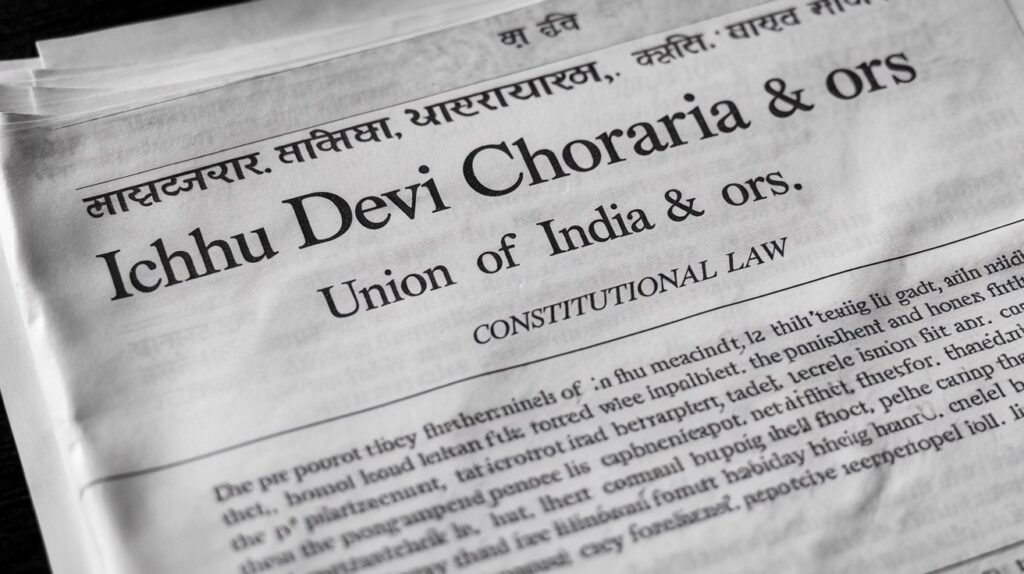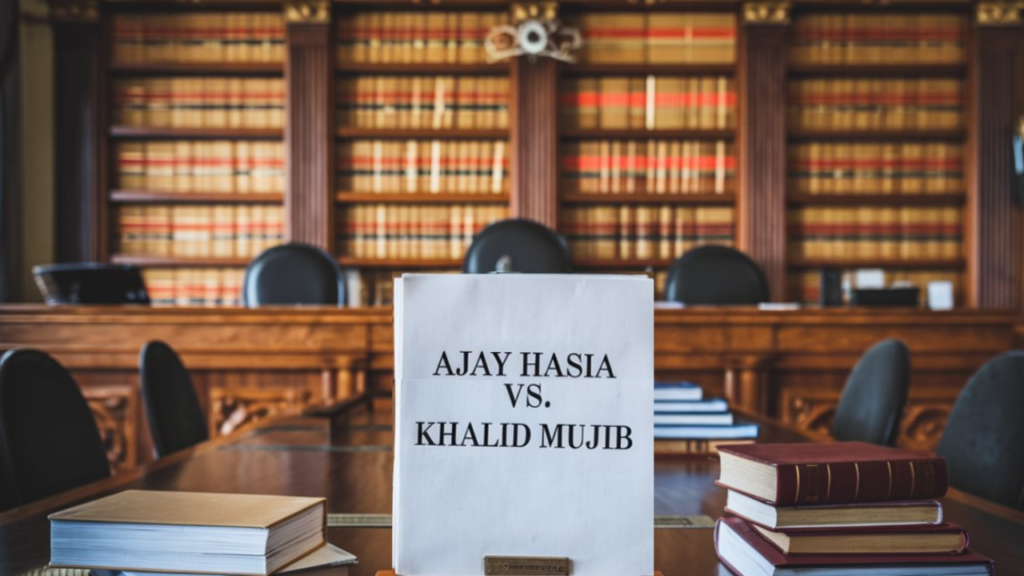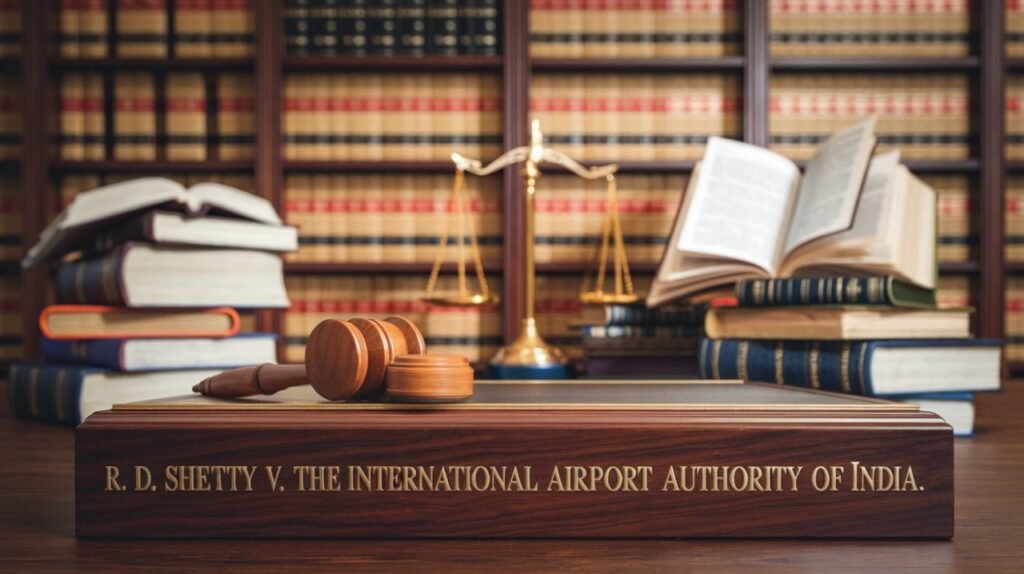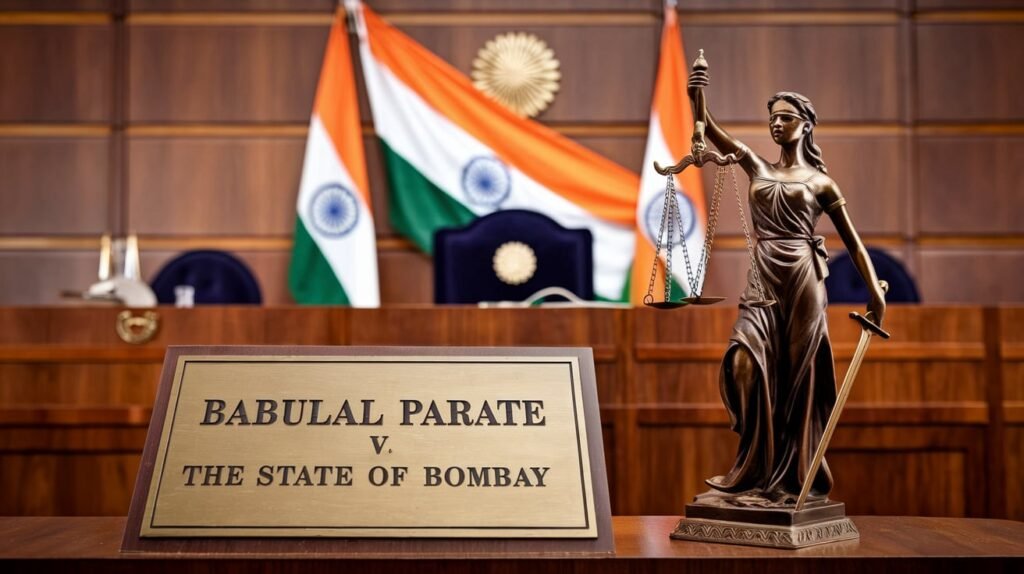Ichhu Devi Choraria v. Union of India & ORS 1980 AIR 1983 (Case Summary)
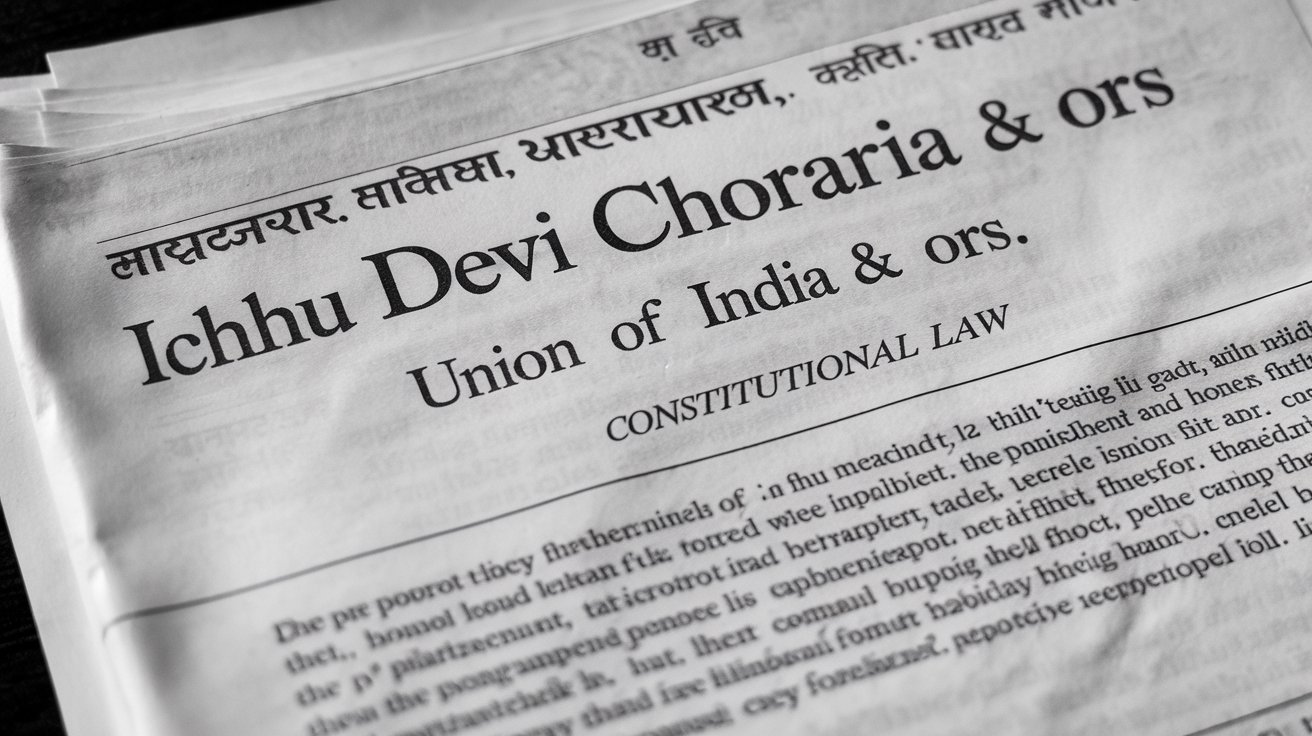
Preventive detention lies at a crucial juncture between state’s security and constitutional rights of the individuals, emphasizing the role of procedural fairness as a non-negotiable element. The present landmark case of Ichhu Devi Choraria vs. Union of India serves as a reminder of this importance ,particularly regarding the protection enshrined under Article 22 of the Constitution of India and Section 3(3) of Conservation of Foreign Exchange and Prevention of Smuggling Activities Act, 1974 [COFEPOSA Act].
Table of Contents
ToggleFacts of Ichhu Devi Choraria v. Union of India
- The Governor of Maharashtra issued a detention order against the detenu under the Conservation of Foreign Exchange and Prevention of Smuggling Activities Act, 1974 [COFEPOSA Act], aiming to prevent him from smuggling goods and abetting smuggling activities.
- On 4 June 1980, the detenu was detained and served with the detention order, along with the grounds for his detention which included references to numerous documents, statements, and two tape-recorded conversations.
- The detenu made multiple requests for copies of the materials referenced in the ground of his detention, particularly the tapes, to establish that the voice recorded on the tapes was not his, but he experienced significant delays in receiving them.
- He submitted representations to the Advisory Board, the Central Government and the Deputy Secretary, seeking revocation of the detention order, emphasizing that his requests for the tapes had been repeatedly ignored, making it impossible for him to effectively present his case before the Advisory Board.
- Until 11 July 1980, he did not receive copies of the documents and statements and copies of the tapes were provided even later, on 20 July 1980.
- On 11 July 1980, the Under Secretary reviewed the detenu’s representations challenging his detention and recommended rejection of his plea for revocation of the detention order, the recommendation was supported by the Deputy Secretary and the Secretary.
- On 10 July 1980, detenu’s mother filed a writ petition under Article 32 in the Supreme Court challenging the legality of the detention.
Issues framed
- Whether the delay in providing copies of documents, statements, and tapes to the detenu violated his right under Article 22(5) of the Indian Constitution?
Judgment of Ichhu Devi Choraria v. Union of India
The court analyzed Article 22(5) of the Constitution and Section 3(3) of the COFEPOSA Act.
The court interpreted the phrase “grounds on which the order has been made” in Article 22(5) and Section 3(3) to encompass not only the reasons for detention but also all relevant documents, statements, and materials relied upon. Further, while Article 22(5) mandates communicating the grounds “as soon as possible,” Section 3(3) of COFEPOSA Act expressly provides the timeframe within which the authority has to provide the grounds i.e. within 5 days in ordinary situations, and 15 days in extraordinary circumstances. The court observed that the copies of the crucial evidence were provided to the detenu on 11 July 1980 and 20 July 1980 – which exceeded the timeframe prescribed by COFEPOSA Act. It concluded that providing these materials in a timely manner is crucial for the detenu to prepare an effective representation.
The Hon’ble Supreme Court held that the continued detention of detenu after 19 June 1980 (fifteen days after his detention) was illegal and void due to the detaining authority’s failure to comply with the procedural safeguards outlined in Article 22(5) and Section 3(3) of the COFEPOSA Act. The court further emphasized that the detaining authority must act with reasonable expedition in supplying documents, and adherence to these safeguards is crucial in cases of preventive detention, where liberty is denied without trial. Even potential guilt does not excuse procedural violations. The court, further held that the right to be supplied copies of the documents, statements and other materials relied upon in the grounds of detention without undue delay flows directly as a necessary corollary from the right conferred on the detenu to be afforded the earliest opportunity to make a representation against the detention, because unless the former right is available, the latter cannot be meaningfully exercised. Therefore, the court ordered the immediate release of the detenu.


